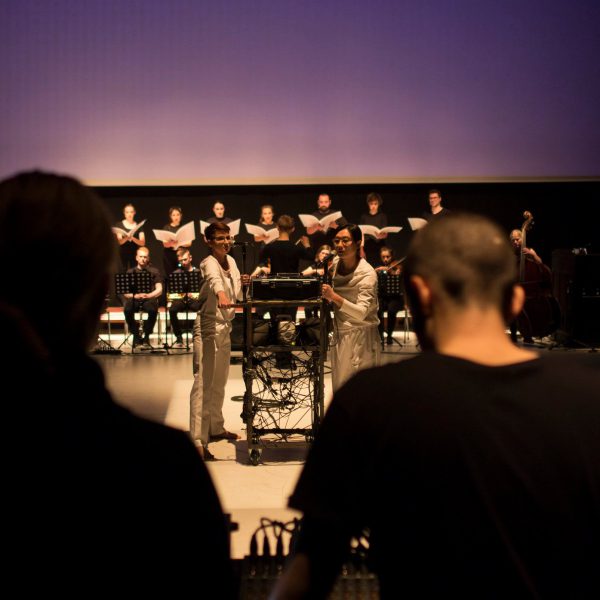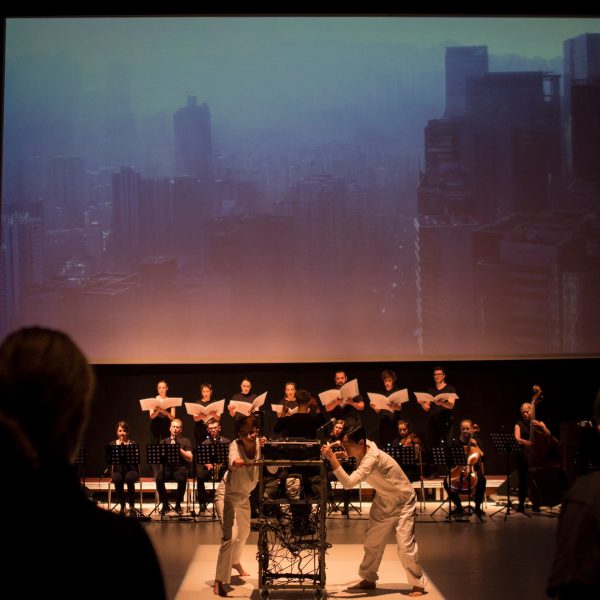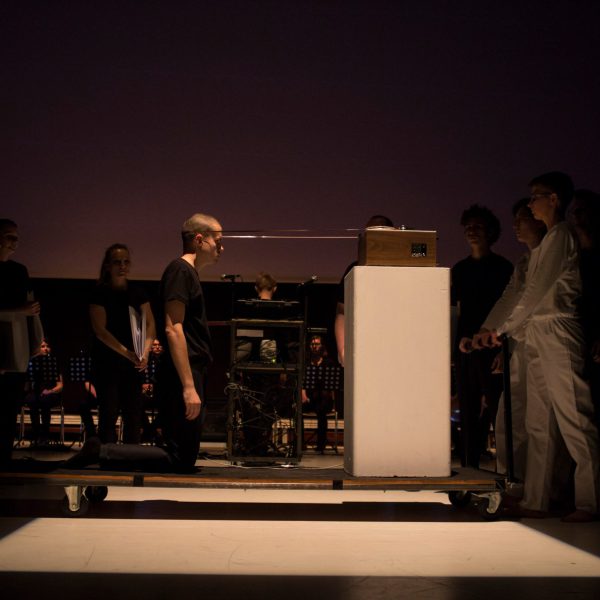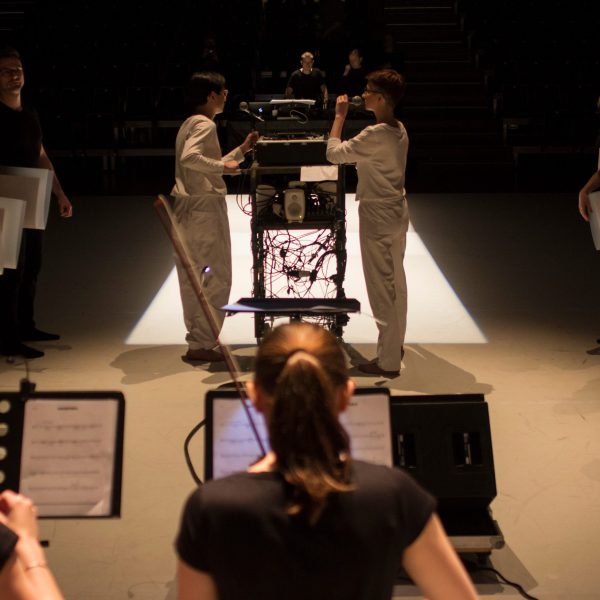The 'global epidemic of nostalgia' took over the baton from the (gradually
yet unstoppably globalizing) 'epidemic of progress frenzy' in the relay race of history.
Zygmunt Bauman, Retrotopia (2017)
Technological progress no longer offers any guarantee of prosperity. As it develops, technology rises above humanity and affects the functioning of the minds, changing our experience of being with others. Yet another rung of technological development may bring about more concerns and anxieties than actual benefits. All this engenders a sense that the future is not a dream anymore.
RETROTOPIA attempts to create a symbolic tale deriving from the metaphysical analysis of the condition of the world today and the challenges it entails. The mainstay of the opera’s intellectual framework relies on the notion of retrotopia or ‘visions located in the lost/stolen/abandoned but undead past’ [Bauman 2017] , which remains unattached to the future which has not yet come to pass. That state of temporal in-between constitutes a certain zone which does not exist in reality, but spans points in time which head in opposite directions. The ‘realm’ thus created will become an stimulus for both the audience and performers to engage in meta-reflection on the current state of (every)thing.
W sztafecie historii „globalna epidemia nostalgii” przejęła pałeczkę po (stopniowo, aczkolwiek nieprzerwanie ulegającej globalizacji) „epidemii gorączki postępu”.
Zygmunt Bauman, Retrotopia (2017)
Postęp technologiczny nie jest już gwarantem dobrobytu. Technologia w swoim rozwoju bierze górę nad człowieczeństwem oraz wpływa na funkcjonowanie umysłów, zmieniając sposób naszego doświadczania bycia z innymi. Kolejny poziom rozwoju technologicznego może przynieść nam więcej trosk i zmartwień niż rzeczywistego pożytku. To wszystko sprawia o obecności przeczucia, że przyszłość już nie jest marzeniem.
RETROTOPIA jest próbą stworzenia symbolicznej opowieści o charakterze metafizycznej analizy kondycji dzisiejszego świata oraz idących za nią wyzwań. Fundament konstrukcji intelektualnej opery stanowi pojęcie „retrotopii” – czyli „wizji osadzonej w utraconej/skradzionej/porzuconej, ale nieumarłej przeszłości” [Bauman 2017] , pozbawionej przywiązania do jeszcze niezaistniałej przyszłości. Ten „stan międzyczasu” konstytuuje pewną nieistniejącą w rzeczywistości strefę, wytworzoną pomiędzy punktami w czasie zmierzającymi w przeciwległych kierunkach. Wytworzona „kraina” stanie się impulsem dla odbiorców, ale również wykonawców, do przeprowadzenia metarefleksji nad aktualnym stanem (wszech)rzeczy.
direction and music Sebastian Dembski
conductor Michał Janocha
set and costume design Patrycja Plich
performers Karolina Kubik, 师昱佳




